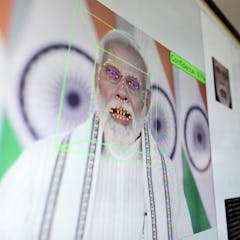
Articles on Technology
Displaying 1 - 20 of 1222 articles

Disabled people are experts in using – and designing – assistive technologies. They have lessons to offer everyone about keeping control when help is offered.

The past can tell us lots about the future when it comes to artificial intelligence.

Many videos people upload to YouTube aren’t really meant for public consumption, but they’re available for AI companies to vacuum up. Many of these personal videos are posted by children.

Cyberattacks are a growing threat to government and commercial spacecraft.

The most common vapes on the market are single-use, disposable ones. They contain valuable resources, yet aren’t designed to be recycled.

Police efforts to sort through online child sexual exploitation material are being hampered by the rise in AI-generated imagery. Here’s how they’re working to combat the problem.

People are concerned about the use of AI in newsrooms, but it depends on the type of news. Sports and entertainment don’t draw the same concern.

The trailblazing engineer was co-inventor of a technique for designing computer chips that laid the groundwork for the computing revolution.

Novel metaphors can make it easier to understand complex concepts such as quantum computing.

The plant has been propagated worldwide, but every surviving specimen of Encephalartos woodii is a male clone – and without a female, natural reproduction is impossible.

Secret recordings raise questions about Justice Alito’s impartiality, but they also reveal the weak state of legal protections against the misuse of the microphones and cameras everyone carries.

We didn’t stop climbing mountains when chair lifts were invented. Similarly, there will always be something uniquely special and valuable about human music-making.

Technology could come to the rescue, protecting the integrity of elections.

Campaigns used deepfakes to connect with voters rather than deception, and AI also helped them break through language barriers.

An information scientist explains that while Google’s AI Overviews and other AI search tools may look enticing, you shouldn’t rely on them to fill all your search needs.

AI has learned the ins and outs of proteins. Gene editing gives scientists control of life’s molecular machinery. Together they could lead to a revolution in biotechnology.

Americans associate with each other more online than off these days. How people interact in digital communities could have a big impact on democracy.

Human culture has changed too fast for evolution to keep up.

Beijing’s cyber operations are largely conducted in the shadows. But a recent leak has shed light on how the state is working with private companies to target online activism.

We now have the technology and knowledge to carry out real-time dream experiments with sleeping participants.
